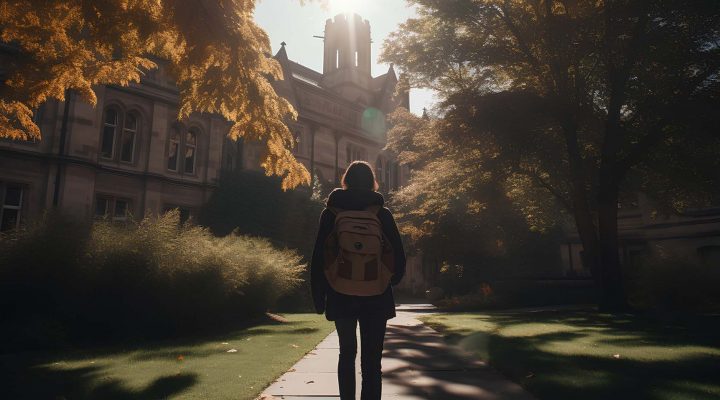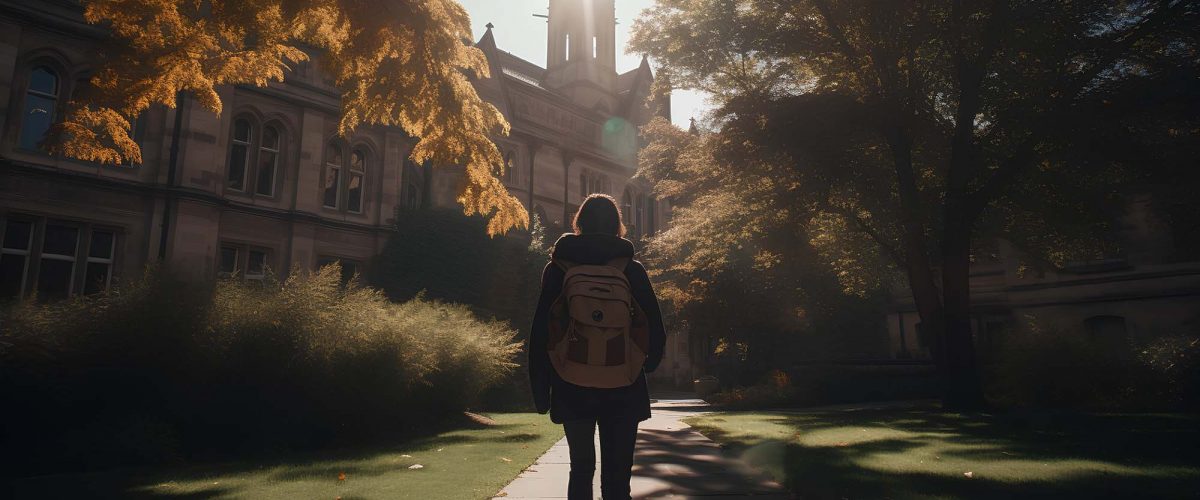“Deconstruction” is a buzzword today for people who seek to unravel the constrictive faith of their childhoods. But the same word might be used to describe the educational process that often happens when students like me go off to college.
As I started my junior year at a Baptist university this fall, I started looking back at my past and seeing how much I have changed in the past two years. Not just how my character has changed but how my faith has changed and how my own form of deconstruction as a college student has influenced me.
Faith deconstruction can be scary for people because it looks different for everyone who goes through it. On one extreme, some who deconstruct can end up deconverting and embracing agnosticism, atheism or an ethereal spirituality. Some who deconstruct end up leaving the church while still keeping their Christian faith. Others who deconstruct come out on the other side with more knowledge and a closer relationship with God.
“One of the times when many people naturally go through deconstruction is in the transition from high school to college.”
One of the times when many people naturally go through deconstruction is in the transition from high school to college, when leaving home for first time and being exposed to new ideas and cultures.
I recently engaged in conversation with two good friends, one of them my girlfriend, about their faith journeys in college.
Jaden, my girlfriend, is a Christian. I asked if she had ever experienced deconstruction. She said yes and explained the driving question for her was, “Is this really the truth? … Why would God simply be a God of nothing?”

Jeremiah Bullock
For her, the process built her faith. “In questioning, there are things I don’t know but I have come to terms with the fact that I am not meant to understand it all and I am not going to in this lifetime,” she said. “And this is where the whole faith portion comes in.”
We talked about whether being on a college campus and having to take religion classes caused any deconstruction. She said that was not her experience because the courses she had to take were “silly and shallow.”
Another peer of mine, McKenzie, also is a Christian. She described deconstruction as “breaking down some of the systems and beliefs we have in Christianity and getting down to the basics of that … and getting down to the legitimate truth. This is my goal when I deconstruct. I still deconstruct on a regular basis. … Don’t just deconstruct but also reconstruct.”
Her deconstruction started around two years ago when her entire church went through what the pastor described as a congregational deconstruction process. The pastor led the congregation through the Bible and analyzed Scripture to see if common things that are said throughout the faith and stories in the Bible are theologically correct or not.
This was the spark for her deconstruction, which she believes is ongoing.
“When you are deconstructing from a place of hurt, it is easy to come up with things that are a result of hurt. … So when you do deconstruct, you can leave out pieces of those wrongs that may have been right (even though) they were hurtful or that you didn’t like or there were negative experiences surrounded by them.”
McKenzie also talked about the practicality of Christian deconstruction as a college student. “When a lot of people deconstruct, they’re just trying to get away from, ‘I’m doing this because someone told me to do this’ … so now people people find themselves in a place where there is no more reason to do it because my parents don’t run me and now I have to know why I am doing this.”
Personally, I have been through a form of deconstruction as well.
“My experience was questioning things that were instilled in me when I was young and seeing if they were actually correct or not.”
My experience was questioning things that were instilled in me when I was young and seeing if they were actually correct or not.
A lot of my deconstruction required separating the truth of the faith from other people of faith who had hurt me. I was dependent on other people to lead me in my walk with God, so when these people let me down or gave me wrong information that wasn’t theologically correct, it hurt my trust in people. Slowly, I had to distance myself from letting people lead me theologically and start letting God lead me. That’s my own deconstruction.
As I have been going through this deconstruction, I have matured and realized not all people’s words are intentionally misleading but still need to be confirmed by discernment from God.
Being a religious studies major has pushed me into more deconstruction. The program is set up to help students expand their train of thought and not just look at things through one lens. The program isn’t made to indoctrinate students but to teach us to analyze what religious doctrines we believe in and help us question those critically in hopes they will emerge with an advanced perspective on what they believe.
Freshman year, my academic adviser recommended I take her 300-level religion class called “Bible and Science.” This class was difficult because I was a freshman taking an upper-level class, the content was very challenging, and this class sparked the beginning of my deconstruction.
I remember one question my professor asked that left me absolutely stunned and unable to answer: “If the oldest rock is 4 billion years old, how can the earth be 10,000 years old? Is the Bible wrong or was the earth created with age? If the earth was created with age, does that make God a deceitful God?”
I still don’t have an answer to that question. But once that question was in my head, a flood of other questions came along with it: Do I have free will? To what extent does God know everything? Is predestination a real thing?
These questions led me to read my Bible even more, do more theological research and ultimately experience a closer relationship with God because I realized where I don’t have knowledge, I have to lean on God more for understanding.
Deconstruction does not always lead people away from faith. For me and other students, it leads to greater faith.
Jeremiah Bullock is a junior at Wingate University and serves this semester as BNG’s Clemons Fellow.
Related articles:
‘Deconstruction’ is not a dirty word | Opinion by Andrea Huffman
The role of seminaries in guiding ex-evangelicals like me through deconstruction | Analysis by Rick Pidcock
Deconstruction is not a disease, and trying harder is not the cure | Opinion by Amy Hayes


